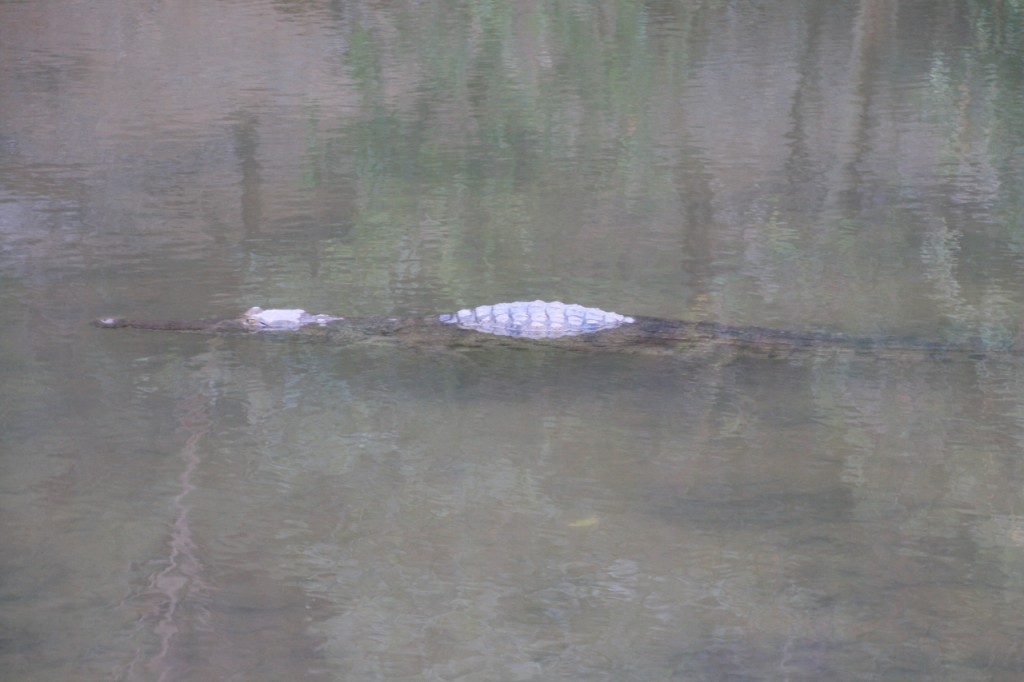Having settled into our comfortable camp at Gambanan located approximately 3km west of One Arm Point and having seen how the tide was running when we arrived, I immediately thought a “with the tide” paddle with the boys to Cape Leveque was in order. The tide changed around lunchtime and the boys were getting ratty and I knew they were in need of some activity. So we loaded the diving and fishing gear into the Mango (kayak) and set off on the 21km paddle with instructions to call Bridget on the radio in 3hrs time. We made great progress, with the tide all the way to Nellie Point where we snuck through a narrow channel between the Point and Swan Island. Here the tide was really moving with decent sized rapids, big eddies, boils and whirlpools. We stopped to take a pic and a short video as you could really hear the water pouring out what is one of the entrances to King Sound. (Note: Cape Cuvier, mentioned in the video, is not the correct name for the most northerly point – it is Nellie Point)
The boys were suitably impressed with the power of nature and we headed down the coast to Cape Leveque still some 13km away. We pulled in at a deserted beach for a swim and a snack and I also changed over lures as my patience for catching fish on a line was waning (I had been trawling a lure for the last 8km with no success).
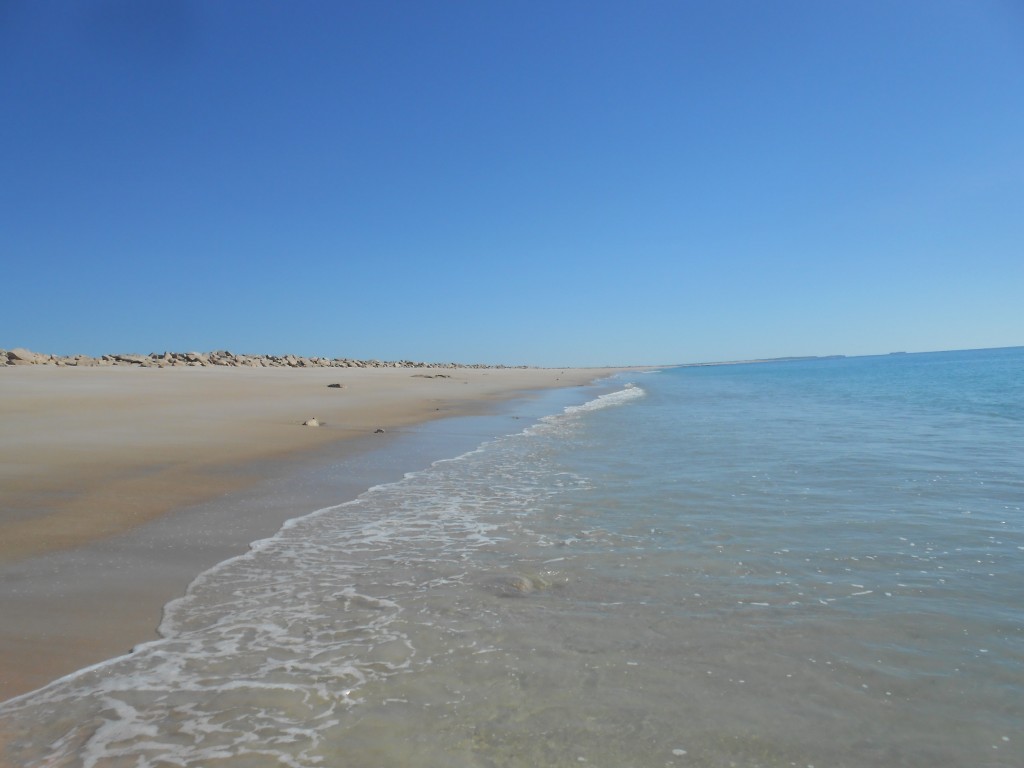
We lost a lot of the ebb tide flow once around the Point but paddled on to the Leveque Lighthouse faintly showing in the distance. The boys’ paddling ability is really improving after initiating them with a 22km paddle on Katherine Gorge and a 42km paddle on the Ord River!
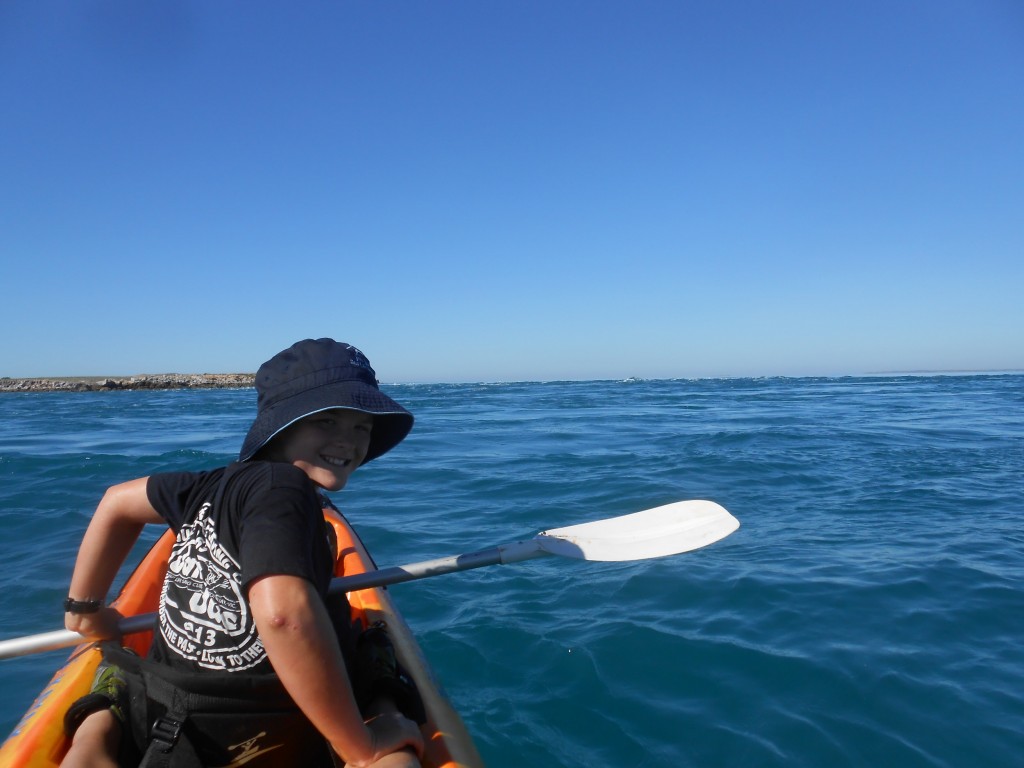
We arrived at the lighthouse with plenty of time to spare and pulled out the dive gear to see if any fish could be speared. No joy here either but at least we saw a big snapper and Harry was loving the tropical underwater world of corals, clams and bright coloured aquarium fish.
We located Bridget on the beach and pulled in with 20mins to spare to watch a fantastic west coast sunset and admire the rich red colours in the coastal cliffs. Another great day, apart from the fishing!
Monthly Archives: August 2013
Afternoon Millpond, August 6, 2013
After our epic trip to the tip of the Dampier Peninsula, it was time to hit the water. Although we saw the ocean close up in Darwin, there were no water activities to be had. So finally we are reunited with the salt water. The Mango is launched in the Indian Ocean, just next to our camp. The sea is glassy smooth, the tide was very low and still running out.
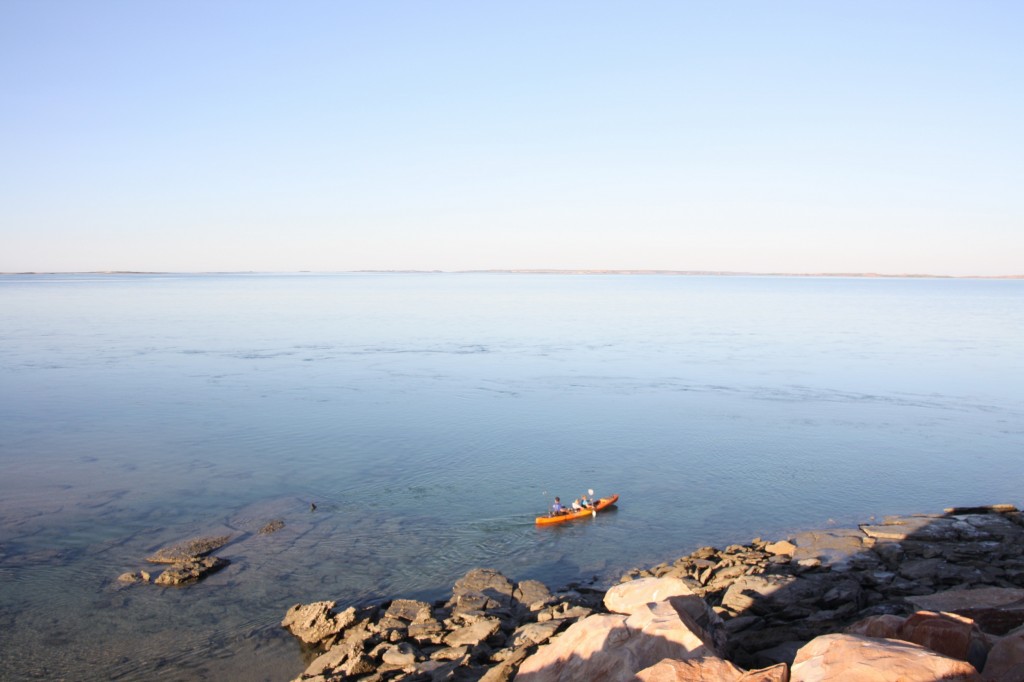
How beautiful is that?
As you can tell, it was almost 5pm by now. The sun sets about 5.30pm, and it’s a perfect time of day. They had a fun paddle up and down the shore near camp. They took the mask and goggles and jumped in for some snorkelling. They saw a huge Loggerhead Turtle (that’s what they think it was), coral and heaps of fish.
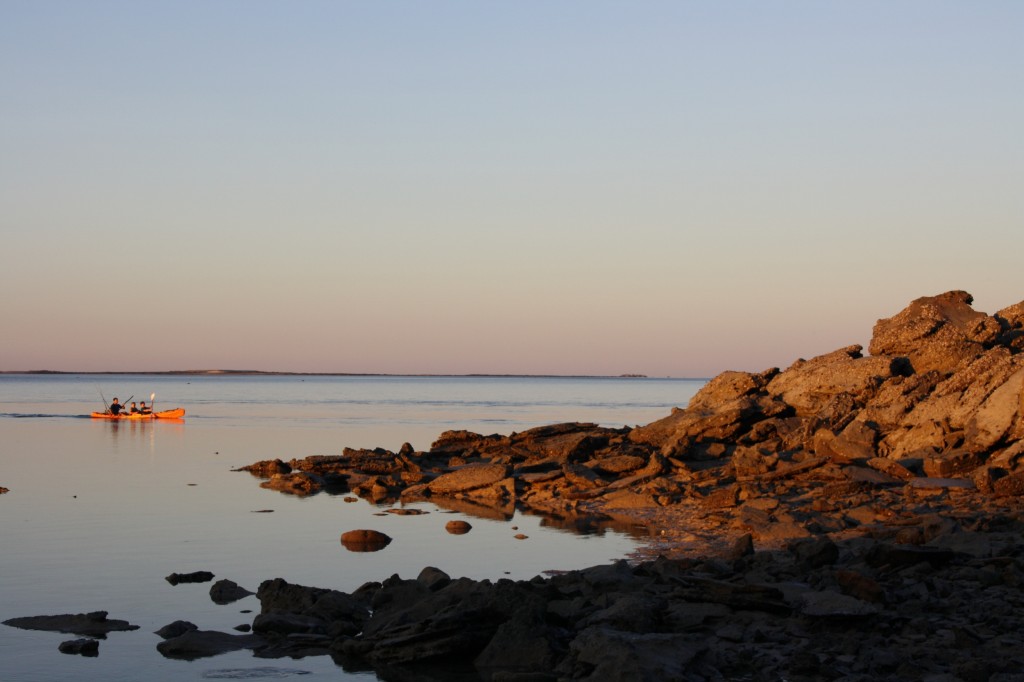
They landed on dusk, and the tide was getting really low now. Below is a photo of a clam we found near shore. It squirted Fergus right in the face when he put his finger in one of the valves!
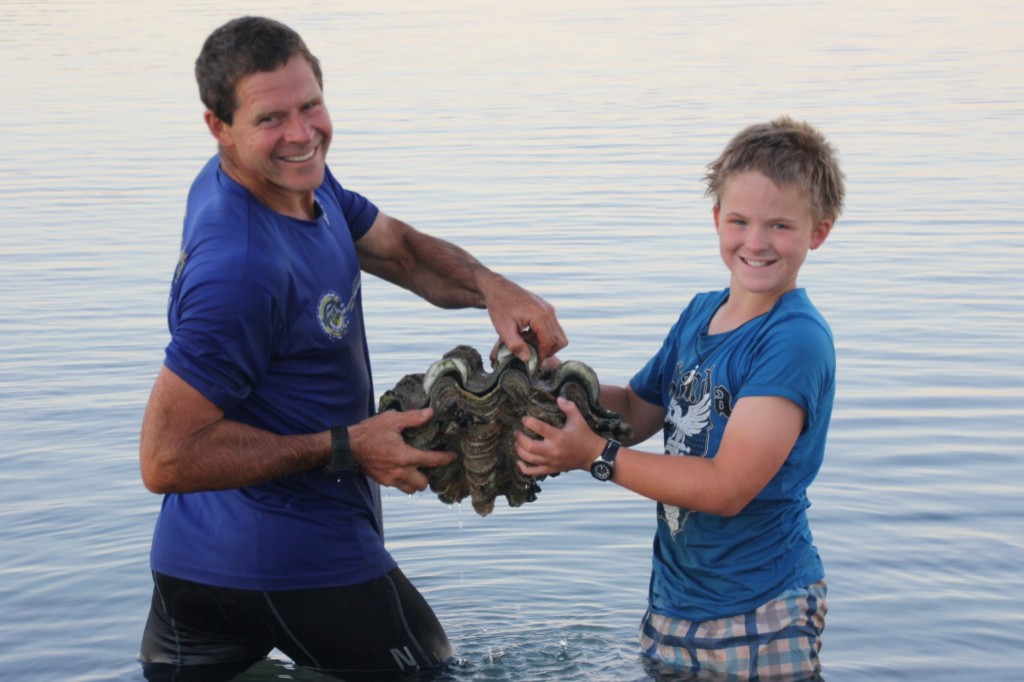
Legendary Landcruiser, August 6, 2013
This is the story of a Great Car.
Our goal for the day was to go to Cape Leveque, at the northern end of the Dampier Peninsula. You can drive from Derby along the Derby Highway, and then, close to Broome, you turn off to the north and get there via Beagle Bay township, some dirt and some bitumen at the end. But we’re travelling with John, and that means you’re likely to take one of John’s short cuts, and this one is a long tale about a long cut. I should state now that John maintains it was a shorter distance, which is true. It was just a LONG drive with plenty of action. So here’s the tale.
About 110km from Derby, we took a track that heads north. It starts out as your average dirt road, with a smattering of corrugations, lots of dips, and a bit rocky in places. Then we went through some biggish, mushy puddles, that turned out to be rather boggy, but the Cruiser punched on through. It was slow going, and we were using two maps that had the track placed rather differently. John’s theory was that it would end up near Beagle Bay eventually.
Continue reading
Doing Derby, August 5, 2013
We completed our journey along the Gibb River Road today – all 660km of it. Mostly red dirt, a big sky and dramatic landscape. It’s a legendary road, and it’s been fun. Conditions have improved over the decades since it was a hell trip, but it was just bad enough to keep most of the Grey Nomads away. Things will change when we get to Broome!
Arriving in Derby, population 5000, was like finding an oasis. Well, sort of. At least the BBQ shapes were on special.
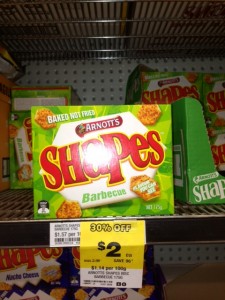
One of Derby’s famous attractions is the Prison Tree, a naturally hollowed out boab, which was used as a prison before transporting to Derby.
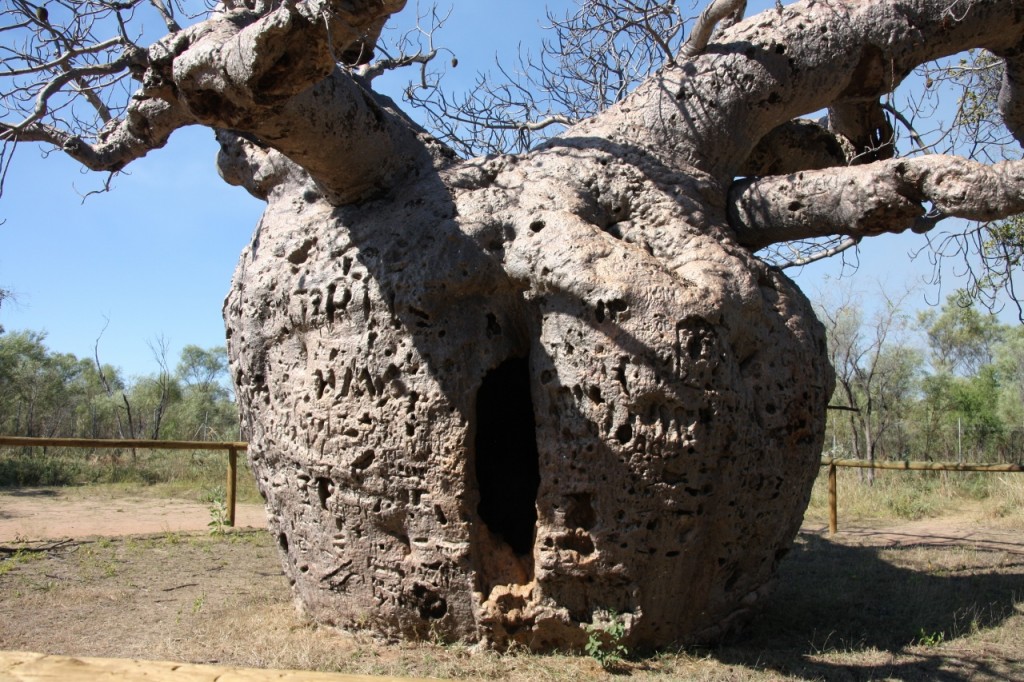
It’s 15 metres round his tummy, and said to be 1500 years old. Boabs are protected in this shire and this means roads and houses must be built around these special trees.
Just next to the Prison Tree is Myall’s Bore which feeds a 120m long cattle trough, said to be the longest in the southern hemisphere.
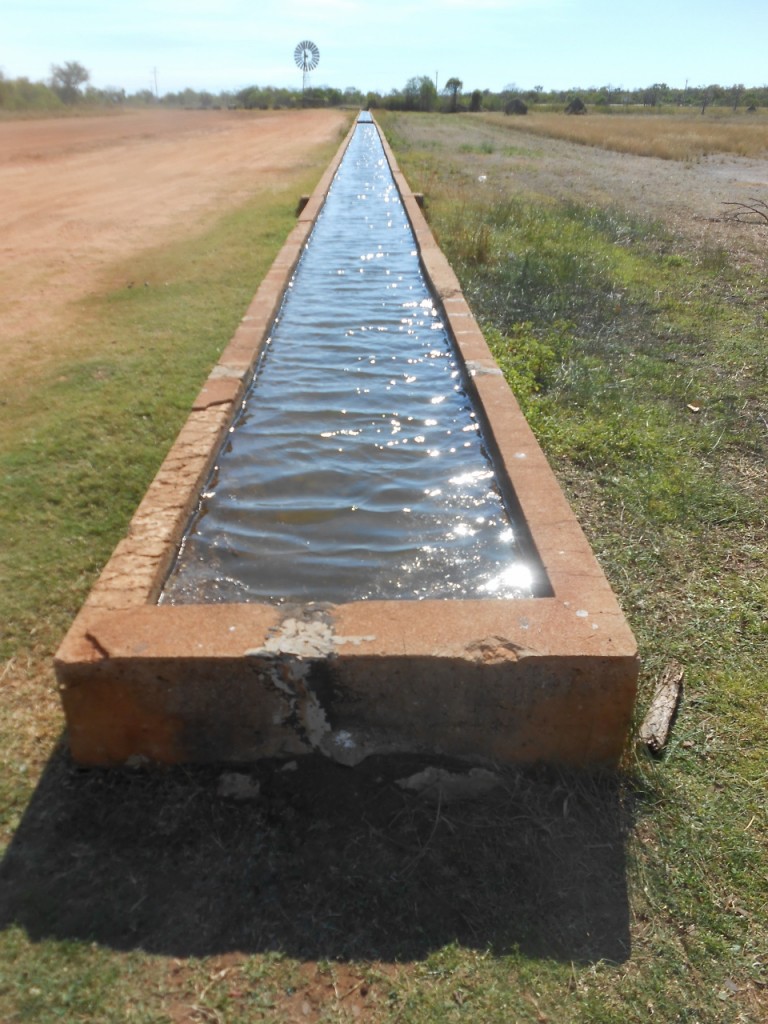
Fergus and Harry went for a ride across the flats, with John having an afternoon run. The smoke from nearby fires makes a dramatic backdrop.
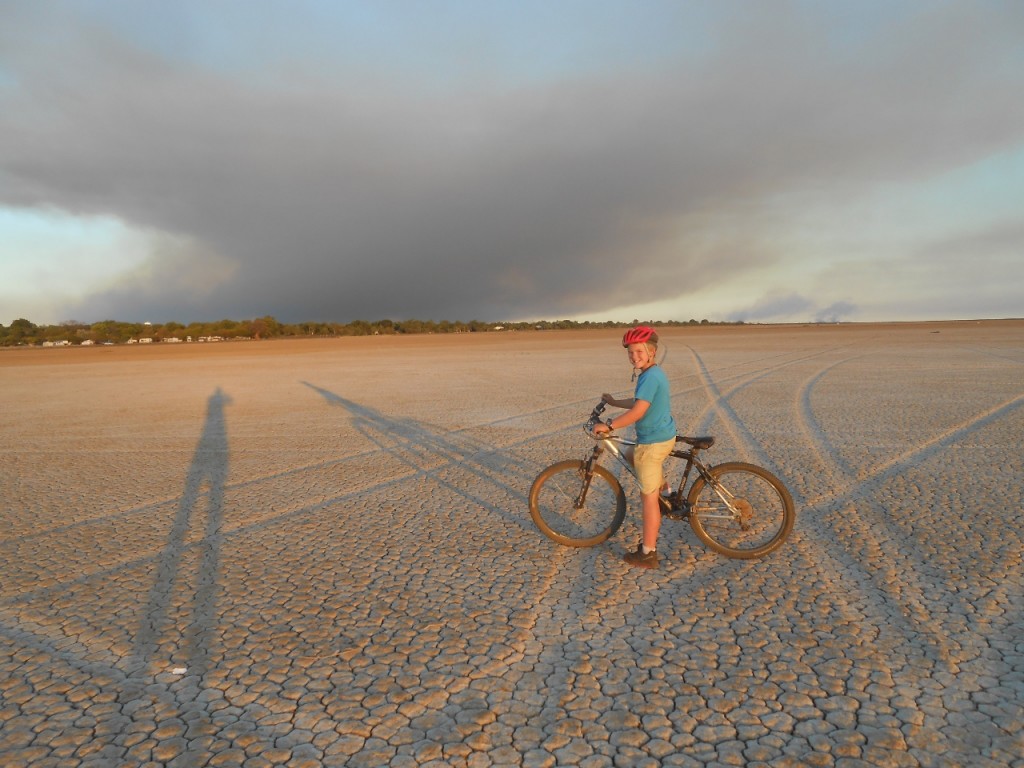
The tides here are some of the biggest in the world at 11.5m. There’s a large circular jetty down a causeway across the mud flats where we saw both a high tide, and came back for a low tide (still with a couple of hours to run out). When I worked in Port Hedland, I lived opposite a similar vast mud flat and mangrove area where the tides were also huge. It’s a fascinating pastime watching the changes.
Another perfect Kimberley sunset.
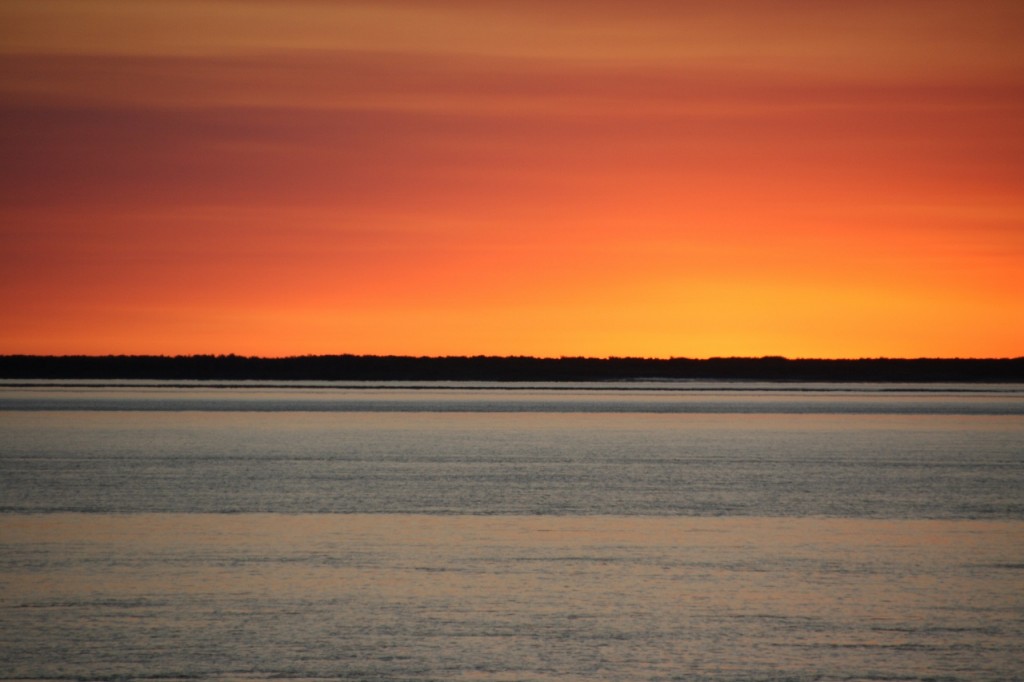
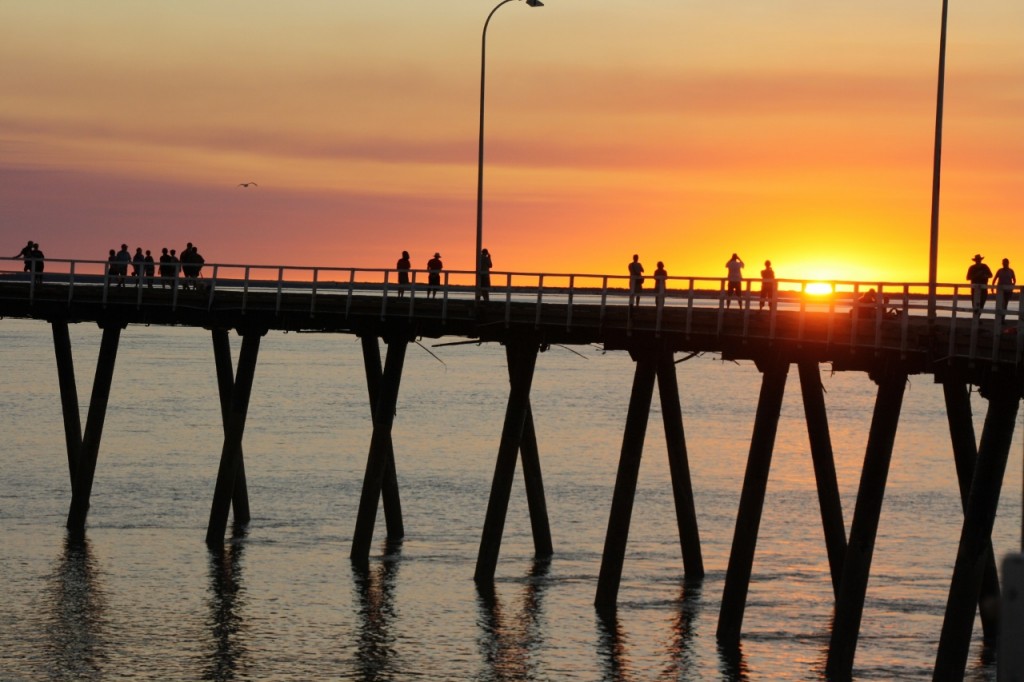
Windjana Gorge, August 5, 2013
Once the heat of the day was subsiding, we started the 7km walk in to Windjana Gorge.
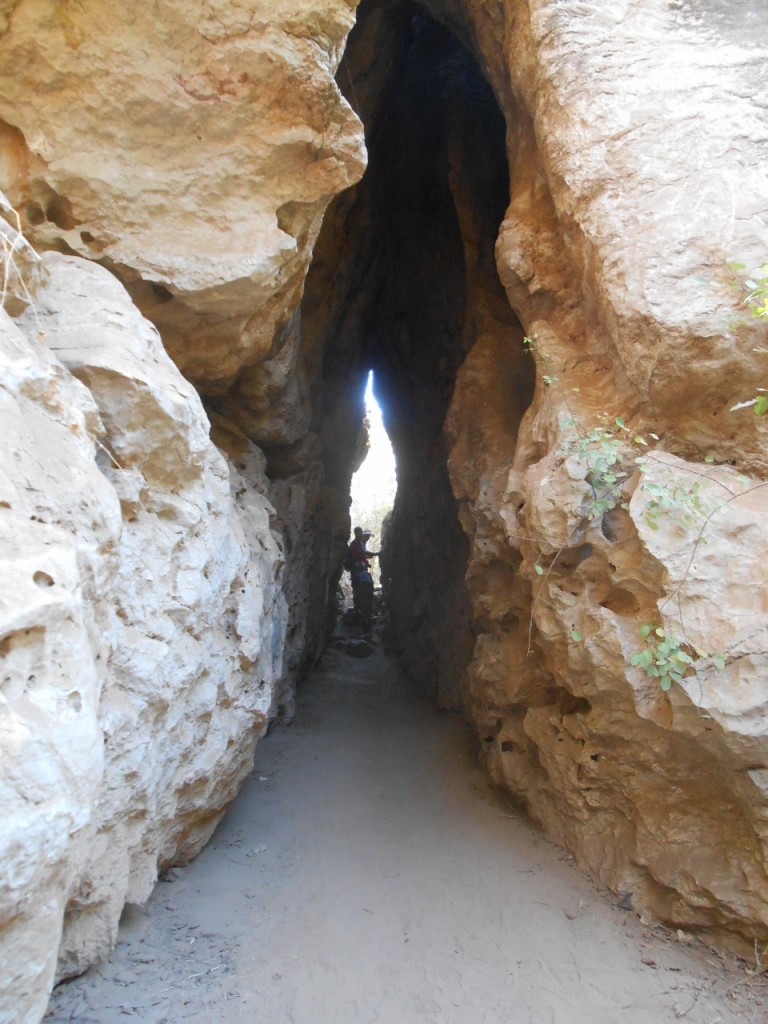
This place is famed for being a classic example of world geology – being the remains of an ancient reef complex. It’s about 3.5km long, and runs along the Lennard River bed, with walls of up to 100m high on either side.
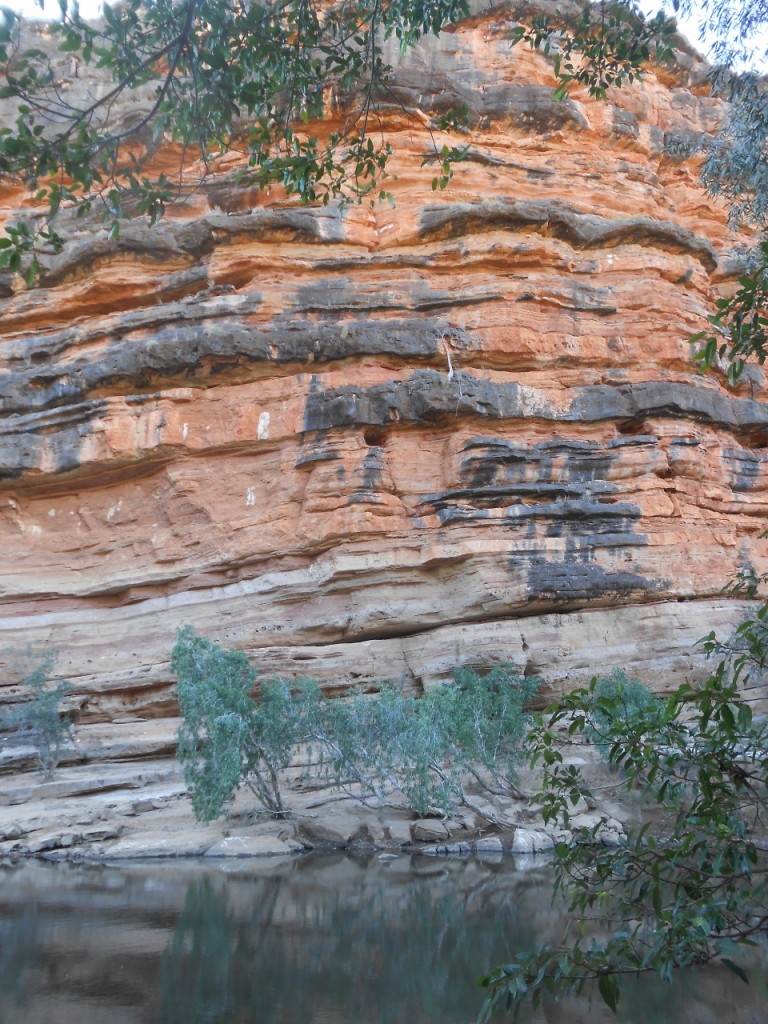
We were all a little (a lot, actually) underwhelmed by the gorge. Perhaps because we’ve seen such dramatic landscape lately, and also as we had to trudge several kilometres on thick, gravelly river sand. Our legs are aching!
The best part was seeing at least 20 freshwater crocodiles in the many pools along the way. The freshies are passive and prefer to eat fish, rather than us. Which is nice.
